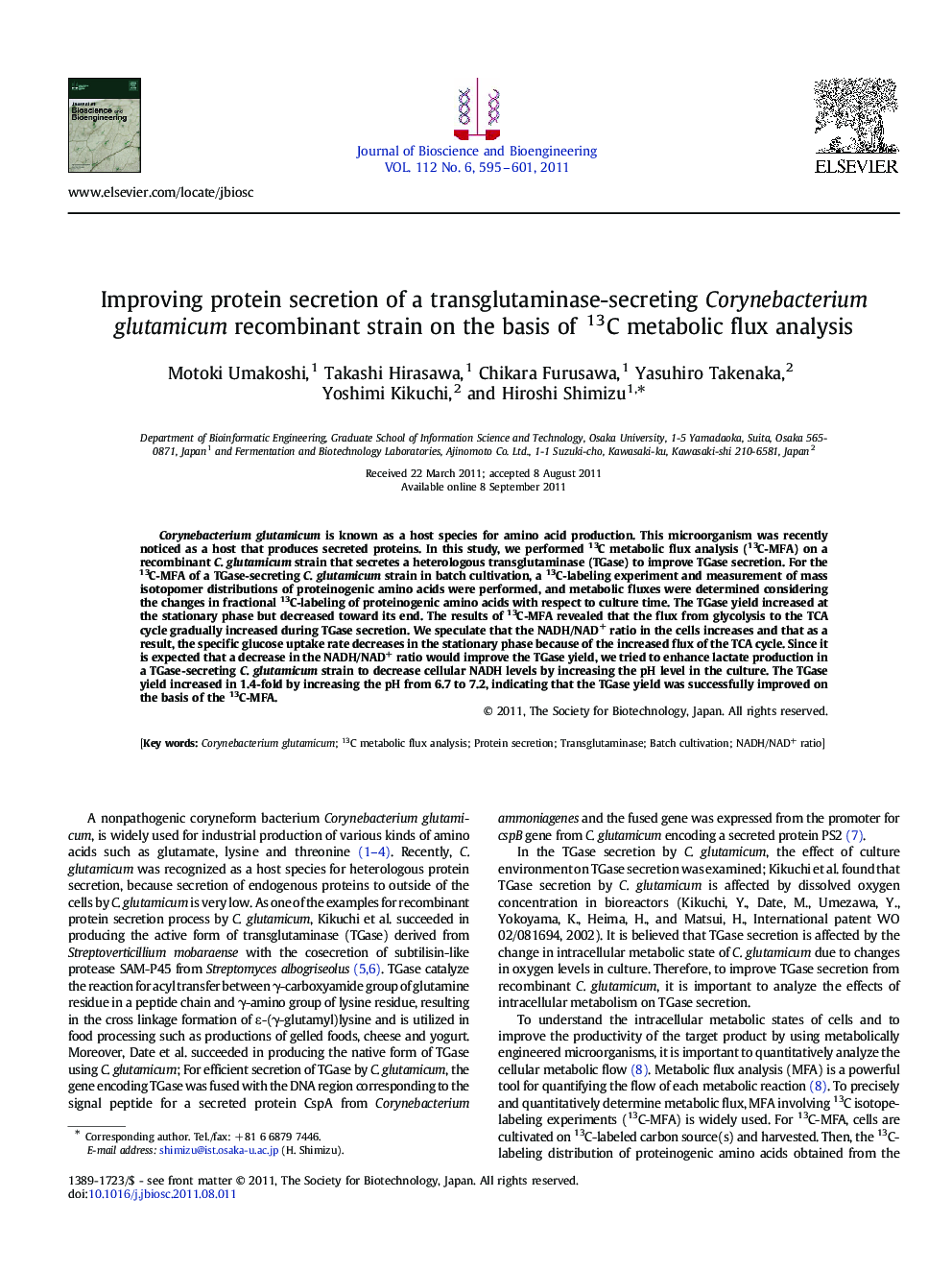| Article ID | Journal | Published Year | Pages | File Type |
|---|---|---|---|---|
| 20939 | Journal of Bioscience and Bioengineering | 2011 | 7 Pages |
Corynebacterium glutamicum is known as a host species for amino acid production. This microorganism was recently noticed as a host that produces secreted proteins. In this study, we performed 13C metabolic flux analysis (13C-MFA) on a recombinant C. glutamicum strain that secretes a heterologous transglutaminase (TGase) to improve TGase secretion. For the 13C-MFA of a TGase-secreting C. glutamicum strain in batch cultivation, a 13C-labeling experiment and measurement of mass isotopomer distributions of proteinogenic amino acids were performed, and metabolic fluxes were determined considering the changes in fractional 13C-labeling of proteinogenic amino acids with respect to culture time. The TGase yield increased at the stationary phase but decreased toward its end. The results of 13C-MFA revealed that the flux from glycolysis to the TCA cycle gradually increased during TGase secretion. We speculate that the NADH/NAD+ ratio in the cells increases and that as a result, the specific glucose uptake rate decreases in the stationary phase because of the increased flux of the TCA cycle. Since it is expected that a decrease in the NADH/NAD+ ratio would improve the TGase yield, we tried to enhance lactate production in a TGase-secreting C. glutamicum strain to decrease cellular NADH levels by increasing the pH level in the culture. The TGase yield increased in 1.4-fold by increasing the pH from 6.7 to 7.2, indicating that the TGase yield was successfully improved on the basis of the 13C-MFA.
